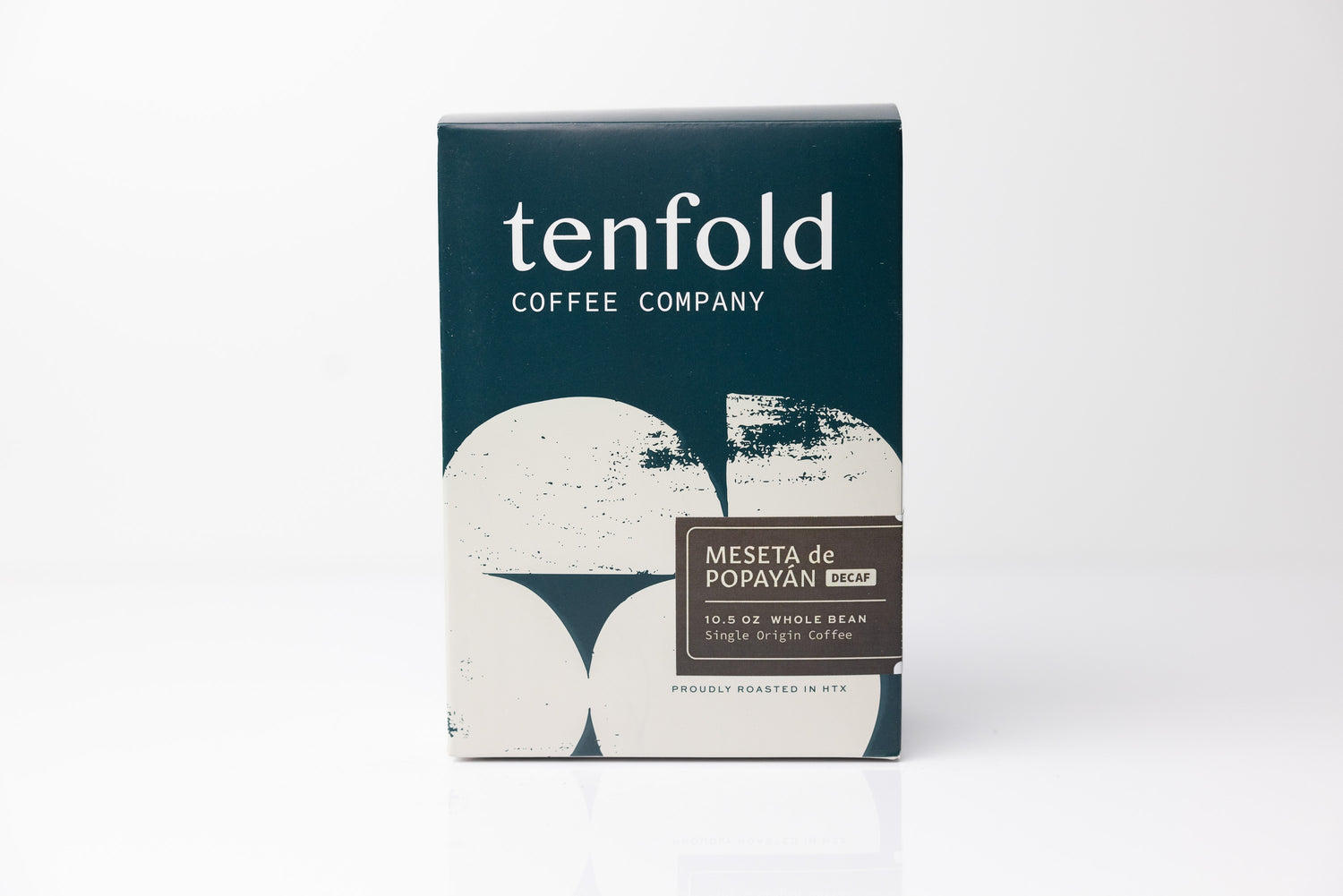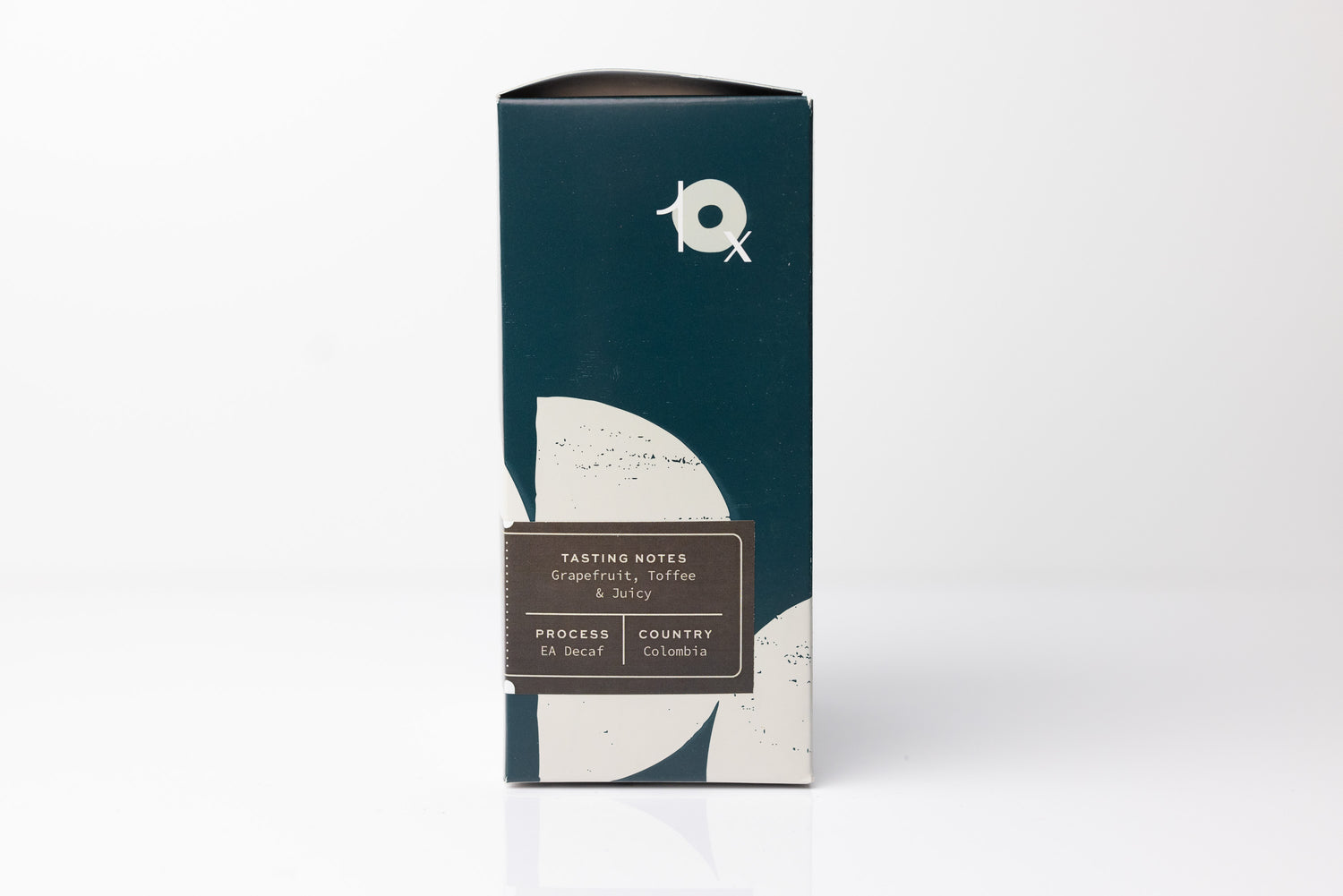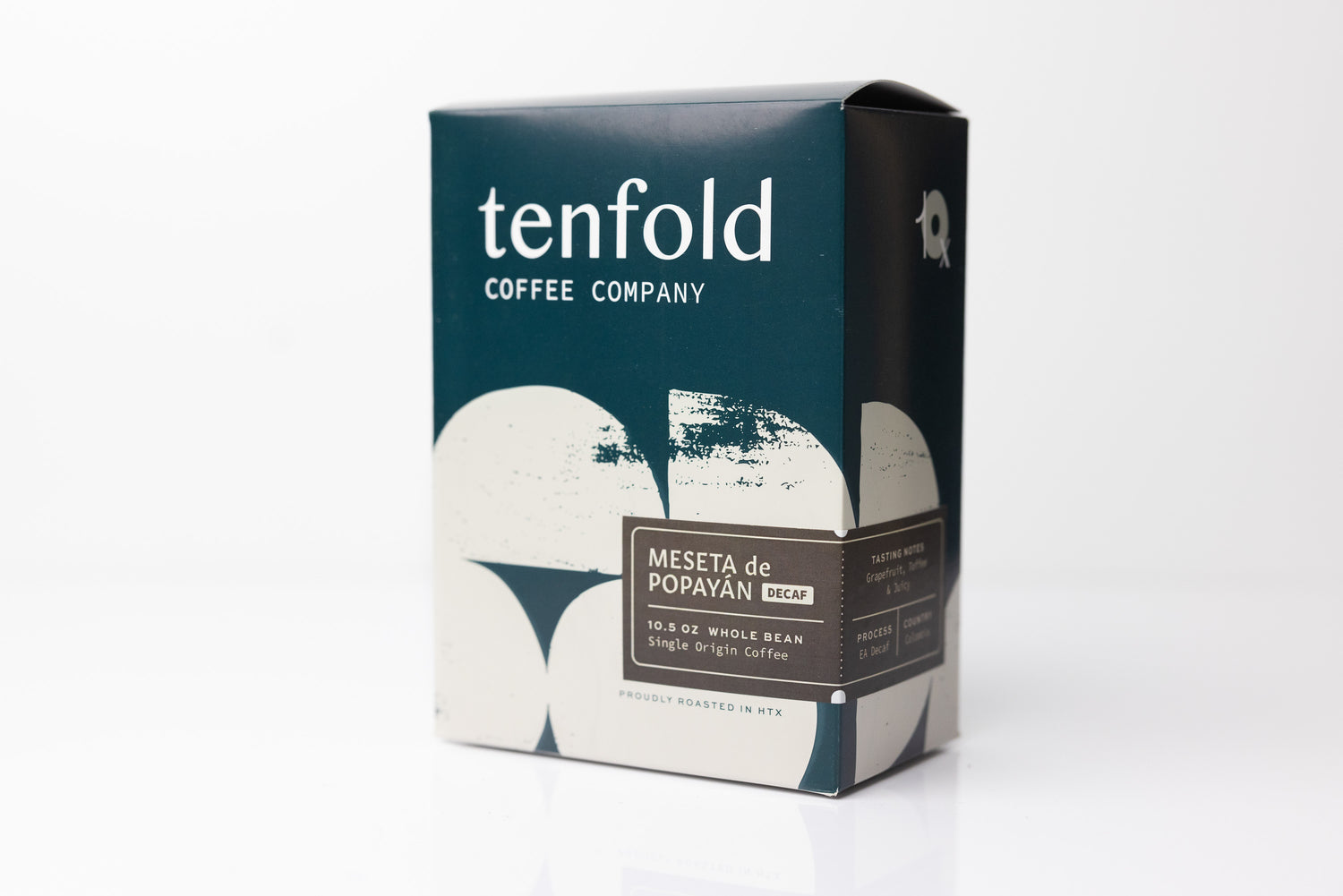Meseta de Popayan DECAF - Colombia
Grapefruit, Toffee, Juicy
This coffee is delicious, and not just “for a decaf”. It’s bursting with citrus flavor, and is well balanced with rich toffee sweetness.
- Regular price
-
$17.25 - Regular price
-
- Sale price
-
$17.25
Couldn't load pickup availability
About This Coffee:
In collaboration with 65 farmer/partners around Popayan, Cofinet takes in harvested coffee cherries to oversee milling, quality control, and sorting the offerings to either be processed as usual, or to be decaffeinated. This coffee is delicious, and not just “for a decaf”.
It’s bursting with citrus flavor, and is well balanced with rich toffee sweetness. The high quality of these cherries is apparent, and it serves as a testament to Ethyl Acetate processing. The integrity of this coffee was not sacrificed for decaffeination!
| Country | Colombia |
| Region/Municipality |
Popayán, Cauca |
| Producer |
65 small holders |
| Variety/Cultivar(s) |
Catimor, Castillo, Caturra, Typica |
| Processing Method |
Ethyl Acetate Decaffeination |
| Elevation |
1500-2070 masl |
|
Tasting Notes |
Grapefruit, Toffee, Juicy |
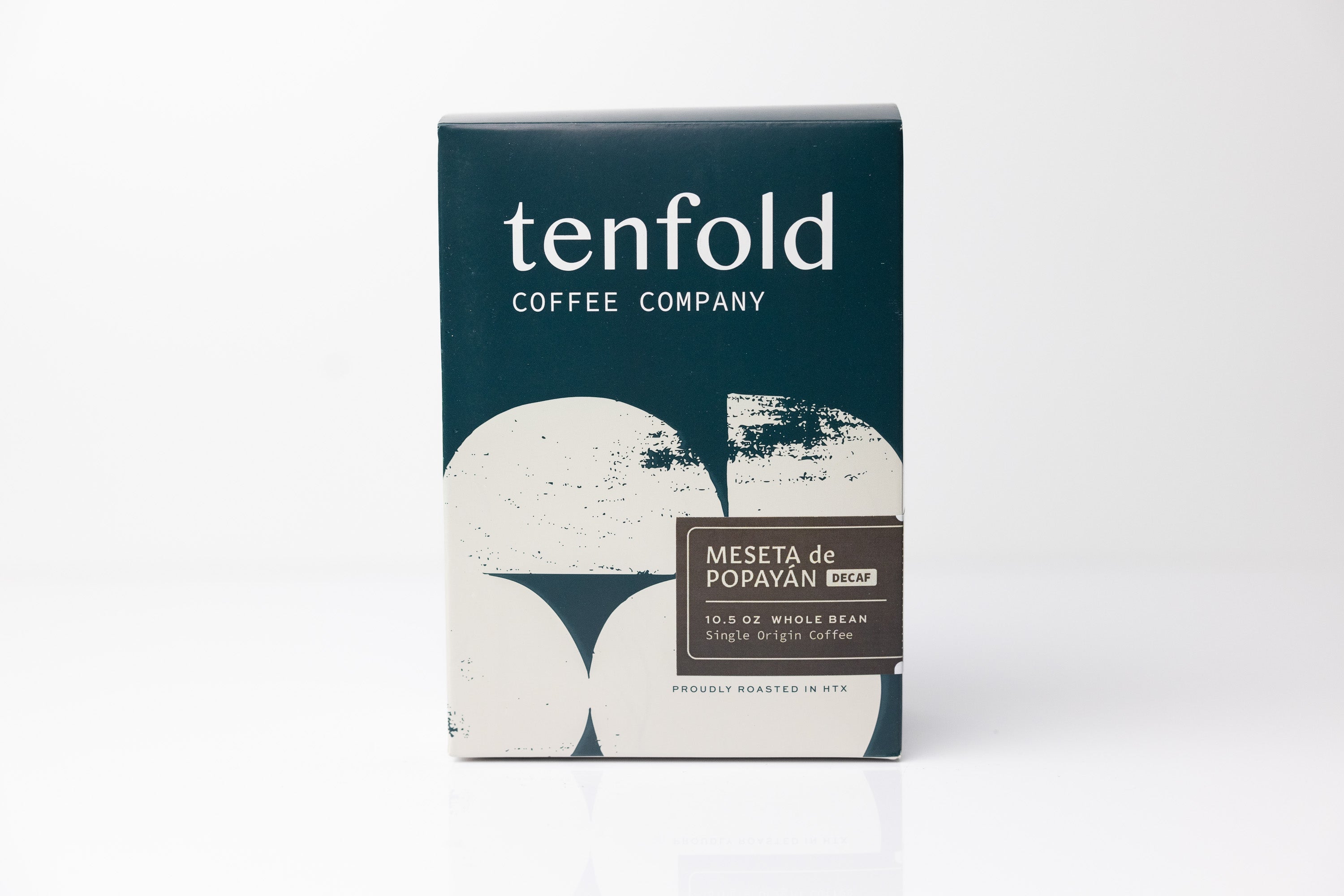
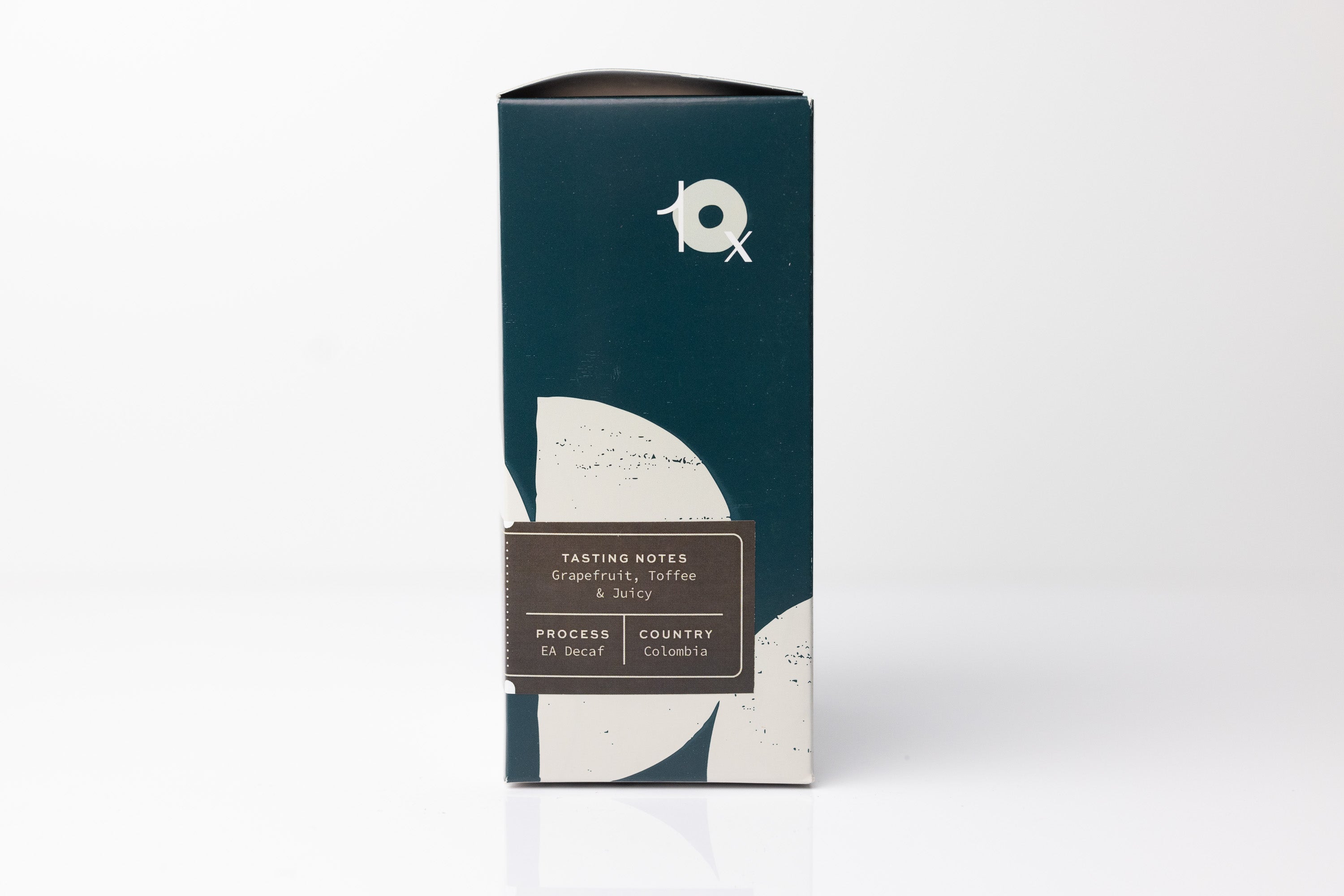
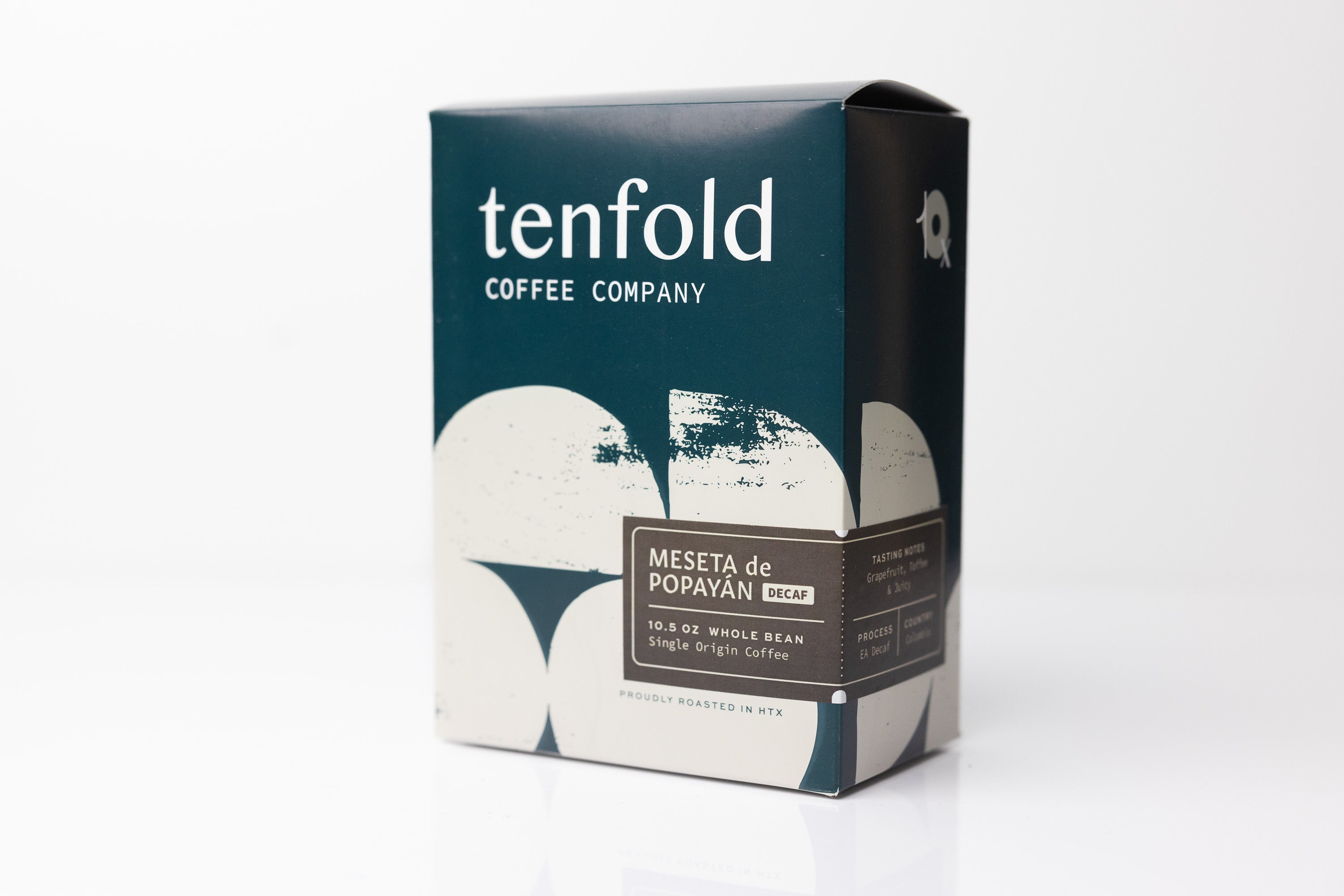
Meseta de Popayan DECAF - Colombia
- Regular price
-
$17.25 - Regular price
-
- Sale price
-
$17.25
Partnership
-
Cofinet
Helmed by Carlos & Felipe Arcila, Cofinet is a leader in producing excellent coffee in Colombia. On their farm and in their processing center (La Pradera), Cofinet highlights exotic varieties and processing methods, pushing the boundaries of coffee quality in Colombia. They aim for sustainable, ethical, and long lasting relationships between coffee growers, roasters, and consumers.
They also partner with and support a large number of specialty coffee growers in Colombia. In addition to public coffee classes at La Pradera, Cofinet offers intensive internships, wherein producers are taught processing/fermentation methods, best growing practices, and given the opportunity to taste and evaluate their work.
Cofinet hopes to assist farmers in producing outstanding coffees that will guarantee a high premium for their hard work.
Cofinet’s commitment to Colombia through coffee production draws us to work with them, and support the positive impact they have on their community. -
About Decaf
Many specialty coffee enthusiasts have a love-hate relationship with decaf—it often tastes different and typically carries a larger carbon footprint, as most decaffeination happens in just a few global plants. Still, many people want a great coffee experience without caffeine, and we see it as our responsibility to source, roast, and serve the best decaf possible.
Descafecol is the only major decaffeination plant in South America, located in Colombia. Being in a coffee-producing country means fresher beans, minimal transport, and a smaller carbon footprint. The process uses fresh water from the snow-capped Nevado del Ruiz volcano and natural ethyl acetate from local sugar cane—a compound that occurs during fermentation and adds a sweet, clean profile.
The decaffeination process begins by steaming green coffee at low pressure to remove silver skins, then soaking the beans in hot water to soften them and allow caffeine extraction. Ethyl acetate is circulated through the coffee until 97% of caffeine is removed, after which low-pressure steam clears any residue. The beans are then vacuum dried to the ideal 10–12% moisture level for export. The result is a decaf that’s fresher, cleaner, and—thanks to this natural method—what we believe is the best-tasting, most sustainable decaf available.
Brew Recipes
Pour Over
30g dose
450g water
202 degrees F
medium grind
3 minutes 15 seconds brew time
ESpresso
18g dose
40g yield
26 seconds
fine grind
